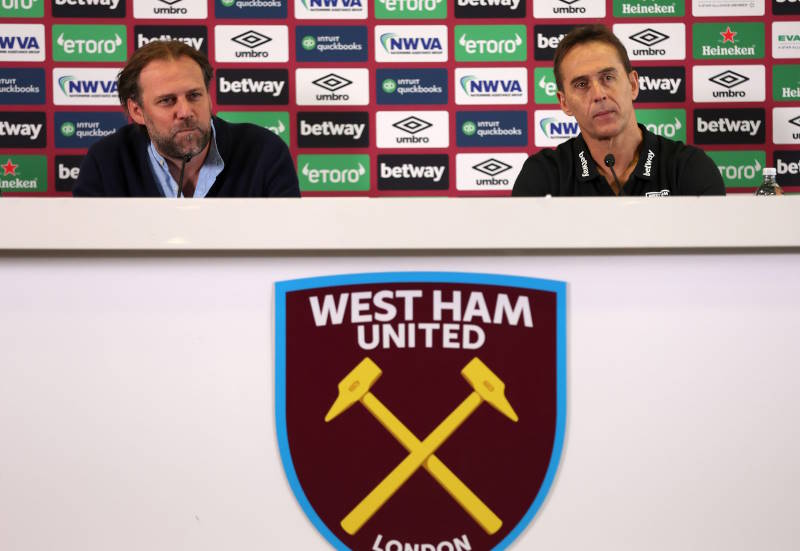
Andrew McCarten
Of England’s 23-man World Cup squad, a nice trivia question could have been ‘how many players have played abroad at some point in their career?’ You’d be certain to find a few working through the list; at least you’d be forgiven for thinking so. However, the results are shocking – only one player in the squad had tested his merits beyond the borders of England, and it was a brief test at that; Peter Crouch made eight appearances as a 19-year-old for Swedish outfit IFK Hasselholm in the summer of 2000, on loan from Tottenham. None of the other 22 players had ever been registered with a club in another country; in fact, if including players who were called up or capped within the past year, but were not given a seat on the plane to South Africa, only David Beckham has ever plied his trade abroad.
The Premier League is surely one of the most competitive in the world and the league structure as a whole in England is not in need of a makeover. In the 2010 UEFA rankings of Europe’s 53 domestic leagues, England’s Premier League finished first, ahead of Spain and Italy: No mean feat considering that the vast majority of Italy’s 2006 squad and Spain’s current World Cup winning group were drawn from their respective domestic leagues. The Premier League is without a doubt a competitive competition with a high degree of technical skill across the board. England’s second level, The Championship, can also be rated as one of the highest calibre second tiers in Europe, and the same can be said of Leagues 1 and 2, where many Premier League players get their start. Given this, it is easy to understand why so few English players feel the need to head abroad.
So why should a lack of national team stars heading abroad be of concern? The answer is the staleness and isolation. And not only England, but the rest of the United Kingdom and Ireland have brought this situation upon themselves, and hence suffered for.
Looking at the national sides of Scotland, Wales, Northern Ireland, and the Republic of Ireland, there is a similar trend. None currently play outside of the British Isles, and only Robbie Keane (Internazionale), David Vaughan (Real Sociedad), and Garry O’Connor (Lokomotiv Moscow) have made brief forays to the continent, which when combined total up to less than two full seasons of action.
And this isolation has begun to hurt the national sides of the British Isles. As countries like Spain, Holland, Italy, and Germany move ahead tactically, and have more success, England and co. are stuck with the same routine. It is extremely uncommon to see a top flight side in any of competitions in the UK or Ireland not use a 4-4-2, or a 4-5-1 if the manager wants to be more defensive. Some may point to the Premier League, but with a considerable foreign presence in both players and coaches, as well as the increased globalisation of this league, the Premier League may not be truly representative of the country’s footballing culture.
The Championship may provide a better glimpse into the English psyche. The chance of seeing Derby County or Ipswich Town line up in a 4-2-3-1, the current vogue formation of the continent, is slim to none. The players are, of course, of a lower standard than these international giants, but it is often only in their initial coaching that a sense of tactical awareness and skill can be instilled into these future stars.
From practically the first time a youngster ties up their boots, British and Irish players are taught that winning is the most important thing; they are drilled in the same formations and ideas. The idea of using a ball smaller than the regulation size never occurs to most coaches either. Futsal is derided as “pointless”, but countless players and coaches who have come through the Spanish and Brazilian setups praise its merits and the way it teaches ball control and precise passing.
Another criticism often levelled at British and Irish football culture is the emphasis on the physically bigger players from an early age, rather than technically gifted ones. And with players loathe to move away from the UK and Ireland, the chance to experience a new philosophy of football is denied. Stars choosing to try their luck on the continent are rare indeed.
A lack of movement means chances to experience and learn about new ways of doing this is lost. One need to only look at the career of Liam Brady, who spent seven years in Serie A with Juventus, Sampdoria, Internazionale, and Ascoli, to see the potential benefits of heading abroad. It is no coincidence that Arsenal are one of the only clubs to play attacking, continental football, because Brady is in charge of their youth development. Time and time again he has praised the continental game and philosophy for bringing up youngsters which he learned in Italy, and again it is no surprise that he has felt the need to go away from England to find players to fit into this system; many young English players cannot adapt to the system employed at Arsenal, as it is so different from those of other clubs.
The complete contrast of Brady is often seen in the modern game. Versatile Welsh talent Joe Ledley had an offer from Italian giants Roma on the table this summer, but decided on a move to Celtic. Former Hamilton Academical midfielder James McCarthy attracted interest from Juventus, and Lazio even put in a bid for the youngster, but he eventually chose Wigan. This exemplifies the closed mindset many footballers in the British Isles have, often completely discarding the idea of playing abroad as irrelevant.
If success at international level is to be attained, this, as well as the approach taken to youth development, must change; and quickly too, because the hole has already been dug.













